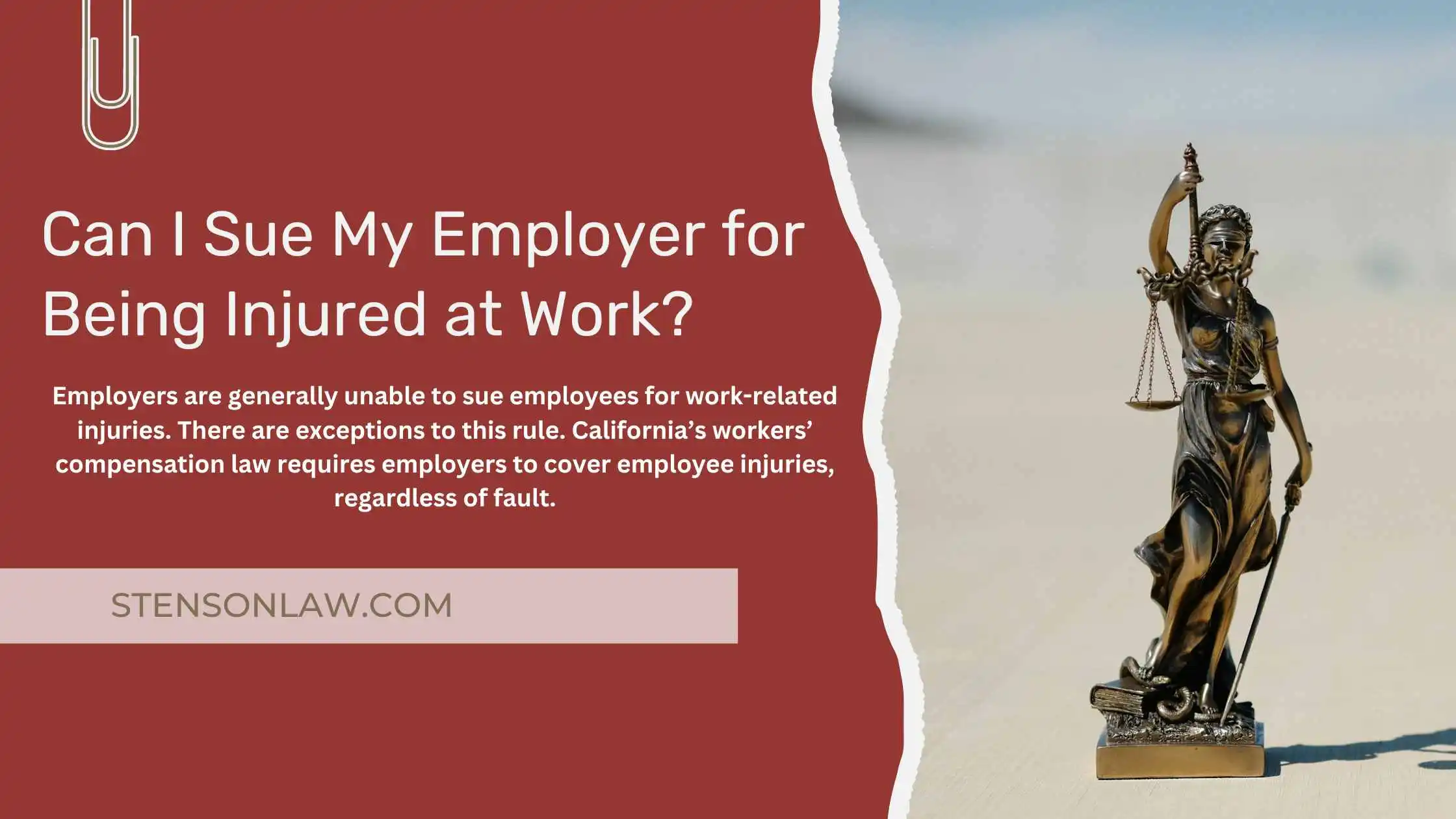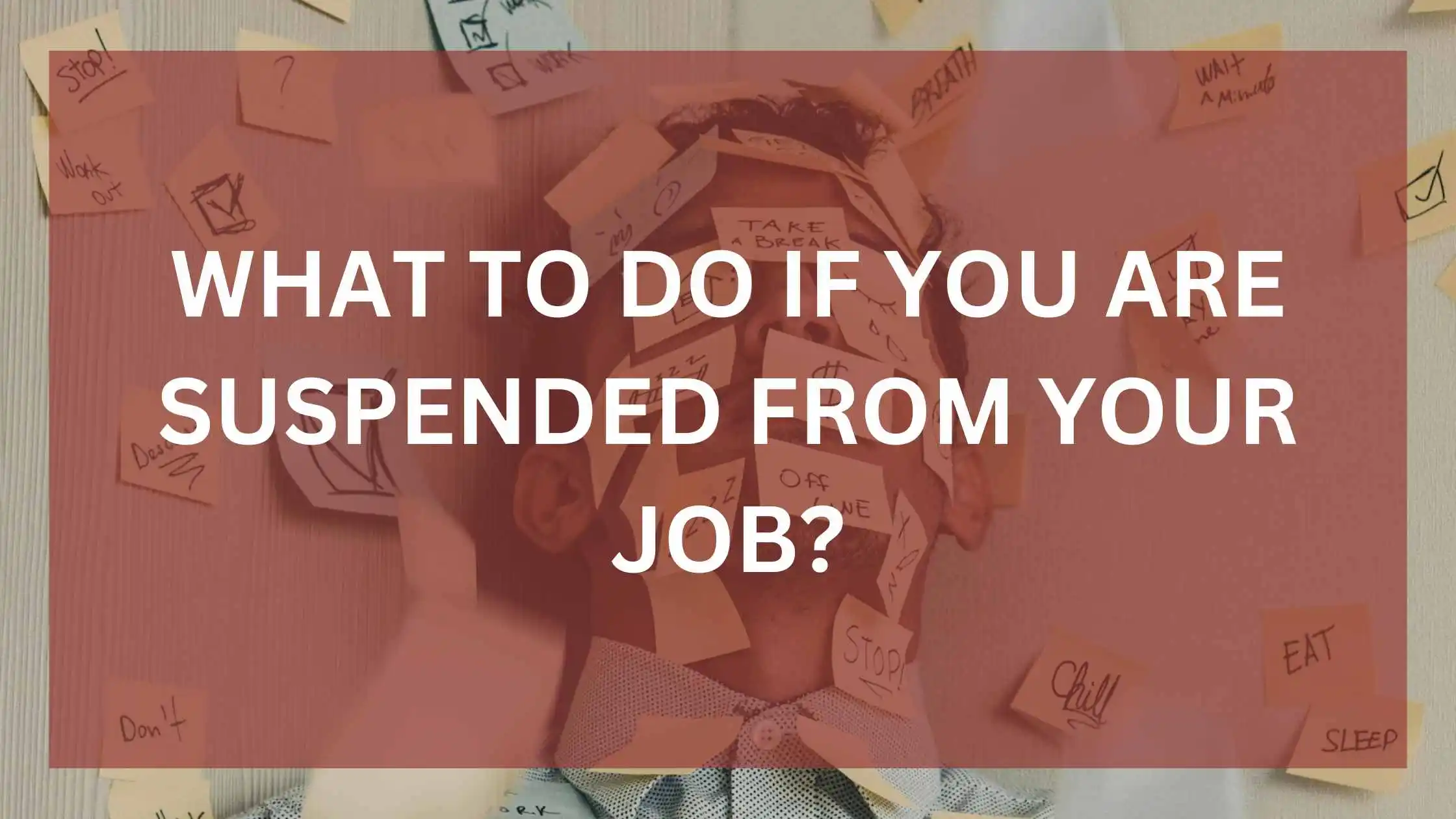Last updated on April 9th, 2024 at 07:32 pm
Employers are generally unable to sue employees for work-related injuries. There are exceptions to this rule. California’s workers’ compensation law requires employers to cover employee injuries, regardless of fault. Employers are protected from personal injury lawsuits by workers in most cases. However, there are exceptions to this rule. In some cases, injured workers may sue their employers for lost wages and or damages.

EMPLOYER IMMUNITY EXCEPTIONS
California’s workers’ compensation laws prevent employees from suing employers for work-related injuries. Workers’ compensation laws provide “employer immunity”, which means that employers are required to pay workers’ compensation benefits regardless if employees are at fault.
Employer immunity is not absolute. However, there are exceptions. These are just a few examples of situations where you might be able to sue your employer.
- Your employer willful assault of another employee caused you to be injured.
- Your employer’s fraudulent or wrongful concealment of your injury, and the connection to your employment, caused your injury to become worse or more severe.
- Your employer had a defective product, and you were hurt by it.
- Your employer didn’t have Workers’ Compensation Insurance as required by law.
- The machine guard or safety feature was removed. This applies when a worker is injured or dies because the employer knew to remove or fail to install a point-of-operation guard on a power press. This may create the possibility of serious injury or death for workers, therefore the employer must have specifically authorized the removal or failure of the installation.
WHAT TO DO IF YOU ARE SUSPENDED FROM YOUR JOB?
You may be able to file a lawsuit against the employer if you are injured while on the job.

These are the steps you should take to determine if you can sue your employer.
- Workers’ compensation eligibility. If you have been hurt on the job, the first thing you should ask is whether you are eligible to receive workers’ compensation benefits. You may not be allowed to sue your employer if you are eligible. In such cases, it is crucial that you file a claim for benefits.
- Medical evaluation: This will require you to provide evidence of the extent and cause of any injuries sustained on the job. It is crucial that you seek a complete medical evaluation as soon as possible. To maintain your workers’ compensation eligibility, you may need to visit a doctor that your employer has approved.
- Details about an accident: Keep as much detail as you can about the incident. It is easy to forget important details. Rich detail gives you a greater advantage.
- Contact a Lawyer for your work injury: An experienced lawyer with a track record in representing injured workers is crucial.
ARE YOU OFF THE CLOCK AND INJURED?
If you are not working at the time of your injury, is it possible to sue your employer? In most cases, the answer is no. There are exceptions. You may be eligible for workers’ compensation benefits if your commute to work is not considered “on-the-job”.
You may also be eligible for a settlement for work-related injuries even if the accident occurred away from your employer’s premises. You might be eligible for compensation if an accident happened on a company trip.
HOW TO GET COMPLETE COMPENSATION
You may be eligible for workers’ comp benefits or can sue your employer under one of the above exceptions. However, if your injuries were caused by someone other than your employer, you might also be able to pursue a third-party personal injury claim. Subcontractors, contractors, property owners, negligent drivers, manufacturers, and distributors of defective goods are all common defendants in third-party cases, as California’s workers’ comp law does not apply in these cases. However, any person or entity responsible for your injuries can be sued.
STATUTE OF LIMITATIONS
The statute of limitations is the time limit within which a lawsuit can be filed. California’s statute of limitations for personal injury claims is usually two years after the injury occurred. The statute of limitations for personal injury claims can vary depending on the lawsuit type. It is therefore important to consult an experienced Los Angeles work injuries lawyer as soon as you can.
PERSONAL INJURY LAWYERS IN LOS ANGELES
It is crucial to schedule a consultation with an experienced lawyer if you or someone you love has been injured at work in California. We have a long and proven track record of helping workers injured in accidents to protect their rights and obtain maximum compensation. We can help you evaluate your case, whether you were hurt at work, on the job, or by another person.
WORK INJURY LAW FAQs
Can I sue my employer for an injury on the job in California?
Employees typically cannot sue their employers for work-related injuries. However, it is important to remember that there are exceptions. Workers’ compensation laws in California require employers to pay for employee injuries regardless of who was at fault.
How long do I have to sue for work-related injuries in California?
The statute of limitations — the period of time to file a claim for California’s workers’ compensation claims is one year from the date of injury. For cumulative trauma, the statute of limitations begins when an employee discovers an injury and either knows or should have known that it was caused by work.
What happens if you get hurt at work in California?
Get emergency treatment if needed. If it’s an emergency, call 911 or go to an emergency room right away. Tell the medical staff that your injury or illness is job-related. If you can safely do so, contact your employer for further instructions.
What is the maximum workers’ compensation in California?
For 2020, the maximum is $1,299.43 per week, while the minimum is $194.91. However, these amounts will be different for people who were injured before 2020; for two years after the injury, you’re locked into the maximum TD payment that applied to your injury date.
Can I sue my employer for negligence?
How to Sue Your Employer for Negligence. You must gather as much evidence and proof as possible in order for a negligence claim to be successful. With this said, there are specific steps that must be taken prior to filing your claim which include trying to resolve the problem directly with your employer.
Can you apply for unemployment after workers comp settlement in California?
It is possible to collect unemployment after a workers’ compensation settlement, but oftentimes a resignation letter will become part of the settlement deal. If you signed off on the resignation letter then you will no longer be able to collect unemployment.





